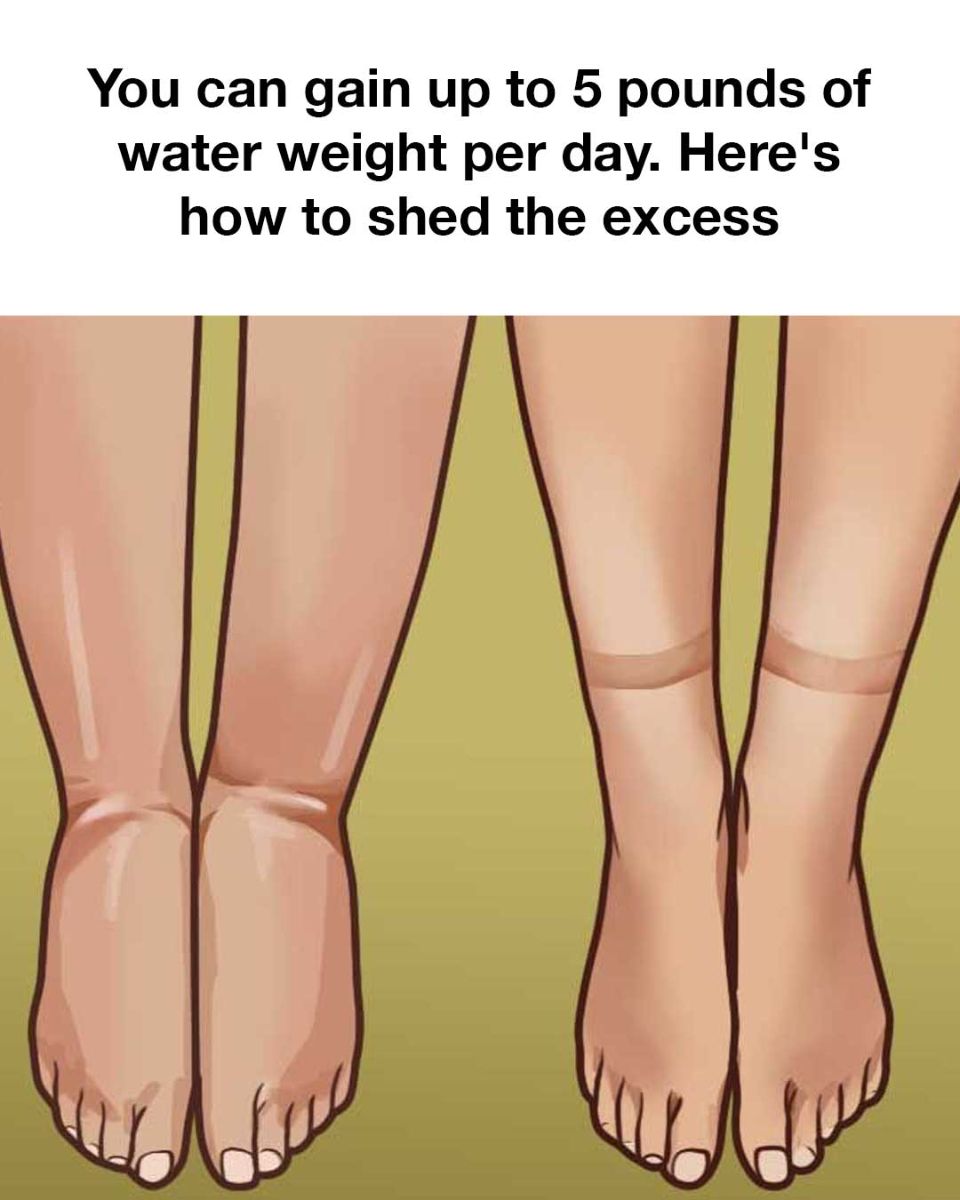
you can gain up to 5 pounds
How Sodium Affects Water Retention?
Sodium is a key player in the body’s fluid balance. High salt intake can cause the body to retain more water to dilute the excess sodium in the bloodstream. This can lead to bloating and a temporary increase in weight. Reducing sodium intake can help mitigate this effect.
The Role of Carbohydrates in Water Weight
Carbohydrates are stored in the muscles and liver as glycogen, which binds to water molecules. For every gram of glycogen stored, the body retains about 3 grams of water. Hence, a diet high in carbohydrates can lead to increased water weight. Conversely, reducing carb intake can help reduce this excess water.
Hormonal Influences on Water Retention
Hormonal fluctuations, particularly in women, can cause water retention. Hormones such as estrogen, progesterone, and cortisol can affect how much water your body retains. This is often observed during menstruation, pregnancy, or periods of high stress.
Lifestyle Factors That Can Cause Water Weight Gain
Lifestyle choices such as a sedentary lifestyle, poor diet, lack of sleep, and high stress levels can all contribute to water retention. Additionally, long periods of inactivity, such as sitting or standing still for too long, can cause fluids to pool in the lower extremities.
How Exercise Can Impact Water Weight
Exercise can both increase and decrease water weight. Intense exercise may lead to increased water retention due to muscle repair and inflammation. However, regular physical activity helps in improving circulation and sweating, which can reduce water retention.
Effective Strategies for Reducing Water Weight
There are several strategies to shed excess water weight, including dietary changes, lifestyle adjustments, and incorporating regular exercise. Key approaches include reducing sodium intake, moderating carbohydrate consumption, increasing potassium intake, staying hydrated, and ensuring adequate sleep and stress management.
The Importance of Hydration
It may seem counterintuitive, but drinking more water can actually help reduce water retention. When the body senses that it is well-hydrated, it is less likely to hold onto excess fluid. Therefore, maintaining adequate hydration is crucial for managing water weight.
Tips for Reducing Dietary Sodium
To reduce sodium intake, avoid processed foods, opt for fresh ingredients, use herbs and spices for seasoning instead of salt, and always check the sodium content on food labels. Cooking at home more often than eating out can also help control sodium levels.
Incorporating Potassium-Rich Foods
Potassium helps balance sodium levels in the body and encourages the elimination of excess water. Incorporate potassium-rich foods such as bananas, oranges, spinach, sweet potatoes, and avocado into your diet to help reduce water retention.
Managing Carbohydrate Intake
Moderating your carbohydrate intake can help reduce water weight. Focus on consuming complex carbohydrates such as whole grains, vegetables, and legumes, which have a lower impact on water retention compared to simple carbs like white bread and pastries.
Lifestyle Changes for Long-Term Management
Making sustainable lifestyle changes can help manage and prevent water retention in the long term. This includes maintaining a balanced diet, staying active, managing stress levels, getting adequate sleep, and avoiding long periods of inactivity.
When to Seek Medical Advice
While water weight is usually a temporary and manageable condition, persistent or severe water retention may indicate an underlying medical issue such as kidney disease, heart failure, or hormonal imbalances. If you experience ongoing or unexplained swelling, it’s important to seek medical advice.
Conclusion: Maintaining a Healthy Balance
Shedding excess water weight involves a combination of dietary changes, lifestyle adjustments, and mindfulness of one’s body. By understanding the factors that contribute to water retention and adopting healthy habits, you can maintain a balanced and healthy weight. Always remember that fluctuations are normal, and what matters most is overall well-being and long-term health.
ENJOY!!!
Pages: 1 2
